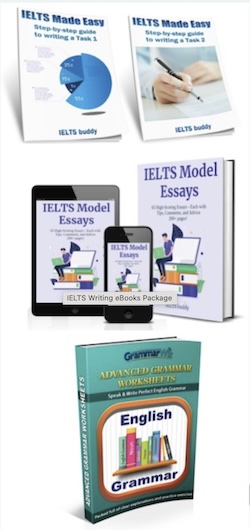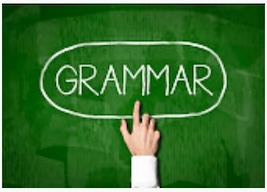- Home
- Reading Lessons
- Guessing Meaning From Context
Guessing meaning from context
Guessing meaning from context in the IELTS exam is an important technique that will improve your reading skills and the speed with which you can read.
Obviously you do not have a dictionary in the exam so there are likely to be a lot of words from the reading text that you do not understand and you cannot check.
What is Guessing Meaning from Context?
If you come across a word you do not understand, then you cannot spend a lot of time working out its meaning because you only have 20 minutes for each reading.
Therefore, guessing meaning from context is necessary. Guessing meaning from context means working out what a word means (or have a good guess at least) from the words that are around it and from the topic of the paragraph.
How do you Guess Meaning?
Take a look at this example:
- It had been raining hard through the night so the ground was saturated.
What does 'saturated' mean? You may already know, but if you don't, you should be able to have a good guess from the rest of the sentence.
It had been raining which means the ground must be wet. It was raining 'hard' so this means the ground is probably very wet.
- saturated = completely wet
By doing this you are guessing meaning from context and you should try and use this technique for words you do not know.
It may not always be clear from the actual sentence and you may have to look at other sentences around the word.
However, only do this for words that seem important for an understanding of the text. If it looks like they are not, then leave it and move on with the reading. You probably won't have time to do it with every word, especially if you are at a lower reading level.
Practice
Look at the reading below. Some of the words are in italics and bold. They are quite difficult words so you may not know them.
Try to guess their meaning from the sentence it is in, or sentences around it, and from the topic of the paragraph.
When you think you have guessed, choose from the words below the reading.
Thai Museum Catalogues Opium Dreams and Nightmares
CHIANG SAEN, Thailand, Wednesday December 04 (Reuters).
1) First reactions to Thailand's giant new opium museum in the Golden Triangle are confused: pleasant surprise at cool air after the intense tropical heat, but then disorientation, shock, even fear. Visitors enter the 100-acre complex through a long, dark, mist-filled tunnel, which winds into the base of a hill past bas-reliefs of distorted human figures before emerging suddenly into bright sunlight in front of a field of poppies. "This is the mystery, the contradiction of opium," says Charles Mehl, head of research for the Mae Fah Luang Foundation, which has just completed the $10 million museum. "Opium is one of the very best drugs we have for treating chronic pain and bringing relief from suffering. But it can also be one of the worst, destroying lives if it is used for recreation or exploited for commercial gain."
2) Built into a hillside by the Mekong River on the northern tip of Thailand, the museum lies at the heart of the Golden Triangle. Chiang Saen town is about 470 miles north of Bangkok, overlooking the junction of the borders of Thailand, Laos and Myanmar, formerly known as Burma. The Golden Triangle is a largely lawless region that last year produced more opium and heroin than Afghanistan and more synthetic stimulant pills than all the rest of the laboratories in Southeast Asia put together, drugs agencies say.
3) Western backpackers and busloads of other day-trippers pour daily into the picturesque Chiang Saen district, in Chiang Rai province, to buy souvenirs on the Mekong's banks. Some try illicit puffs on opium pipes in nearby villages. The museum, which will open officially early next year, aims to exploit this tourist business, luring the curious with the promise of entertainment and impressive audio-visual displays in English and Thai. But as visitors progress down the labyrinthine corridors that stretch across three floors, the warnings against narcotic abuse gradually become more powerful. "People think at first they know what they will see -- a quaint presentation about hill tribes growing opium. But that's only a small part of the story," said Mehl.
4) Mae Fah Luang has fought a 15-year battle against drug-taking and addiction in Chiang Rai province, establishing what the United Nations Office on Drugs and Crime (UNODC) says is probably the best anti-drugs crop-substitution program in Asia. Lessons from that program, which has succeeded in the nearby Thai mountains of Doi Tung in part by offering farmers of opium poppies a better income from alternative crops such as coffee and macadamia nuts, are built into the museum. But it also offers a thorough lesson in the history of opium, its derivatives such as heroin and laudanum, and explains how the drugs trade has helped change the world for hundreds of years.
Tragedy and Trauma
5) Thought to have been used first along the coast of the Mediterranean, archaeologists say the earliest evidence of opium was found in Switzerland dating from the Neolithic period. It was a popular sedative in ancient Egypt and Greece before spreading to northern Europe and Asia and becoming a key commodity that was exchanged for Chinese tea and other spices by the British and Dutch. With 360-degree special effects, the museum traces the 19th century opium wars between Britain and China before looking at prohibition in the 20th century and official efforts, often spectacularly unsuccessful, to stop the use of illegal drugs.
6) The museum asks visitors to themselves decide what could be the best approach to narcotics -- prohibition, drug eradication schemes, decriminalisation or legalisation -- but it pulls no punches on the tragedy and trauma inflicted by drugs on abusers. A final, heart-wrenching gallery recounts the powerful true stories of victims of drug abuse around the world through intimate video testimonies by their families.
7) "The feelings which develop through a visit to the museum change toward the very end when there is evidence of the death and suffering that drug abuse produces," said Antonio Maria Costa, executive director of the Vienna-based UNODC. "The end message is very strong, namely that use of drugs should be fought. Society has to use all its instruments, which means law enforcement for sure, but not only law enforcement. Prevention and treatment are equally important."
Guessing Meaning from Context
Instructions
By looking at the text and guessing meaning from context, choose the answer that has the closest meaning to the word
total confusion; nothing being clear
happiness
understanding
extraordinary; very unusual
bent; twisted; strange shape
unclear
flowers
crops
sheep
illegality
beauty
wonder
promotions; raises
used unfairly; developed in a bad way
employed
cheap
natural
artificial
free
cheap; inexpensive
exciting
middle class
bored; disinterested
rich and famous
physical
local
international
encouragement.
cruelty; meanness
hooked; unable to stop
different
fast growing
legal
banning; stopping; making illegal
promoting; encouraging
increases; rises
removing completely; getting rid of
explaining; giving information about
nurture; propagate; grow
damage; harm
expense
great sadness and pain
Comments
Any comments or questions about this page or about IELTS? Post them here. Your email will not be published or shared.














